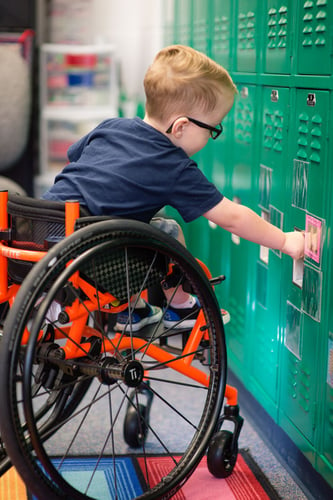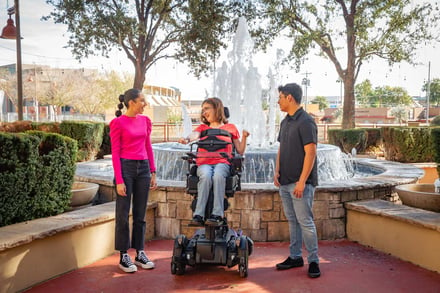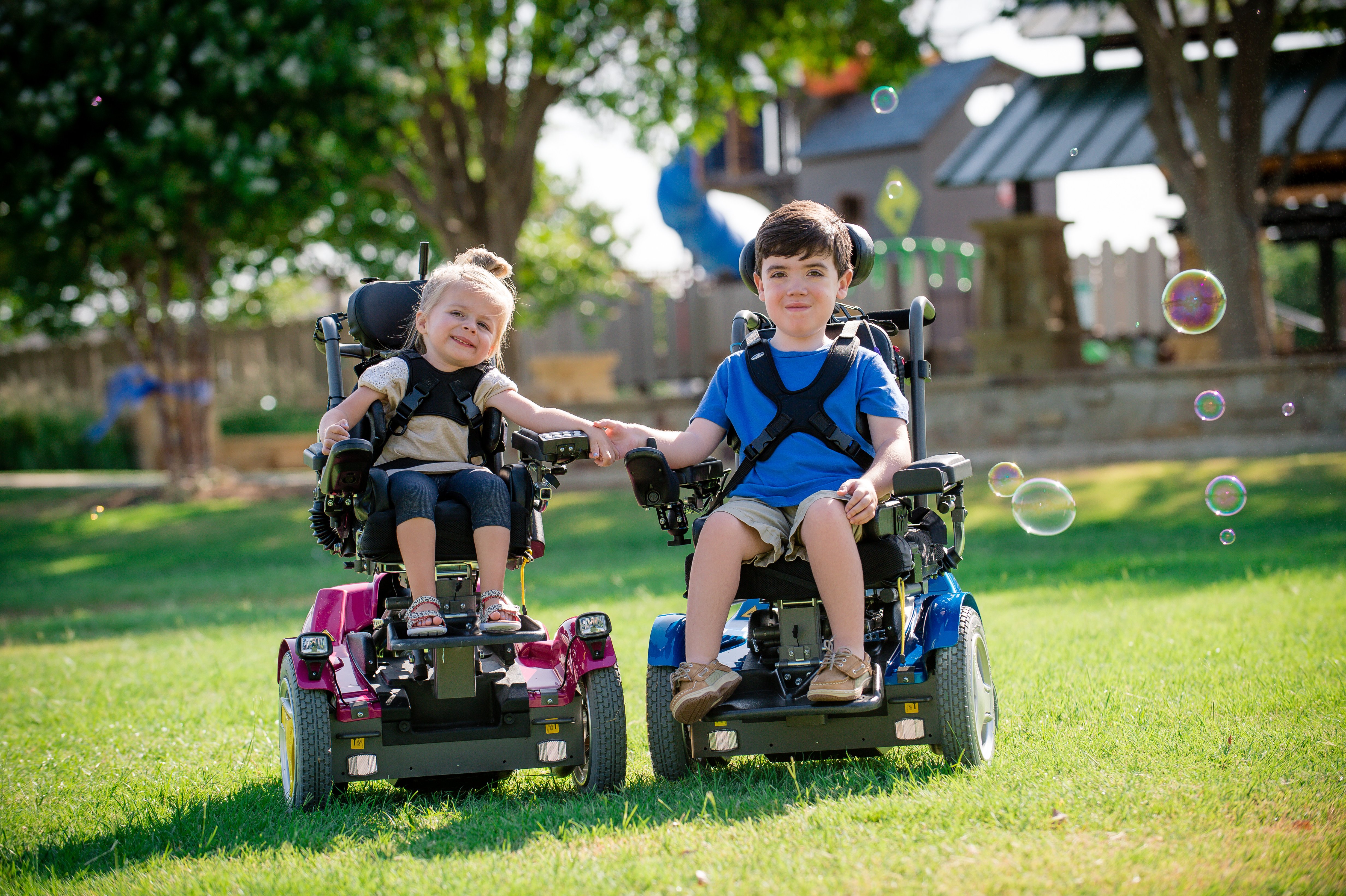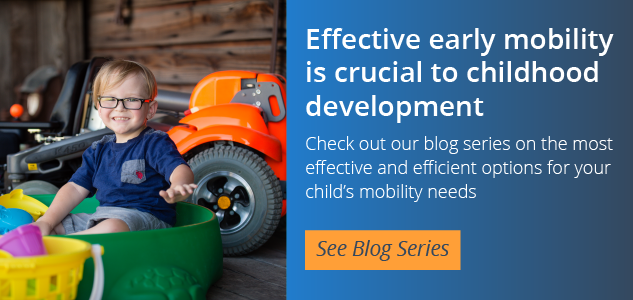As the first week of school begins across the country, it’s vitally important for children with disabilities to be able to learn, make friends, and participate in new activities. That’s why in 2011, Peter Rosenbaum and Jan Willem Gorter of CanChild created a new way to look at disability that incorporates all aspects of growing up – fitness, functioning, friends, family, fun, and the future. Using the World Health Organization’s (WHO) framework for classifying a disability, they created these six F-words that can help caregivers, parents, and physicians ensure the holistic health of their children.
The WHO created the International Classification of Functioning, Disability, and Health (ICF) in 2001 to measure health and disability both for an individual and the broader population. Since then, experts have used the ICF to connect a person’s health condition with body functions and structures, activity, participation, environmental factors, and personal factors.
But that classification framework can seem abstract and out of touch with the daily reality that a child with a disability faces. Words like body function, activity, personal factors, and others won’t relate as much from a child’s perspective.

Rosenbaum and Gorter developed these F-words based on the ICF and an idea that health is the “ability to adapt and self manage.” It’s a more general look at health rather than the WHO’s definition of health, “a state of complete physical, mental and social well-being and not merely the absence of disease or infirmity.” This definition takes all the pieces of the WHO understanding and adds the independence and ability for an individual to manage their own life and health.
One negative F-word, the authors argue, is “fixing.” It focuses on an acute sense of “fixing” or treating the underlying issue, rather than working around or with the symptoms of a disease. What might look “abnormal” may be the best and most efficient way a child with a disability can complete a task. Let’s dive into the F-words and see how they can be applied as the school year begins:
Function
The “function” word relates to the activity and participation part of the ICF Framework. How a child functionally does any activity doesn’t necessarily have to look normal. It helps to look at a holistic view of the patient, where their impairment related to their disability isn’t the only thing that can affect function. There are also environmental factors and other variables at play. For a child to figure out the best way to do activity, they also need to be exposed to places and activities (a playground, building blocks, drawing utensils, etc.) so they have a chance to learn how to do something in their own way.

Family
“Family” relates directly to environmental factors because family are the people a child is spending the most time with. When a physician is evaluating the health of the child in the ICF framework it’s also important that they understand how the diagnosis affects family and their health and well-being as well. Family-centered services are extremely important because it directly affects the child. These services can help identify and ameliorate other factors outside a disability that are causing stress (job, marriage, other kids, etc.).
Fitness
“Fitness” can often be overlooked as family members, caregivers, and physicians put all their effort into managing disease symptoms. This F-word fits into the body structure and function framework of the ICF. Worryingly, many children with disabilities are less fit than their peers, which leads to even worse health outcomes. The authors argue that interventions should be in overall health, rather than just disease management.
Fun
As children with disabilities get older, they’ll want to pursue their own hobbies and activities. That’s where the “fun” F-word comes in. Helping guide them towards things that are possible makes a difference in the personal factors of the ICF and also the participation or involvement in meaningful life situations. Again, it goes back to the function section, where a normal activity may not be right for someone with a disability.
Friends
Social development is a vital part of the growing-up process, especially for those with disabilities. That’s where “friends” comes in, which relates to the participation factor of the ICF. Creating spaces for children with disabilities to have meaningful peer connections can be beneficial in the long run. Making those connections can also lead to deeper relationships and even dating for the teen and young adult population.

Future
The final F-word is more forward-looking. Much time and effort can be spent caring for and guiding a child with a disability in the moment, but the authors argue no one should forget the future and what their dreams and aspirations might be. Preparing for the future can be helpful in the present. At one point the children you are dropping off at elementary school will be graduating high school and forging forward on their own. The future is closer than you think.
 Hawken Miller
Hawken MillerContent Marketing Specialist - Permobil Americas
Before joining Permobil as content marketing specialist, Hawken was a content strategist for the nonprofit CureDuchenne, creating blogs, emails, and social media content for the Duchenne muscular dystrophy community. For most of his life before that, he worked as a journalist, writing feature stories for BioNews, and reporting on the video game beat for The Washington Post. Following his passion for writing, Hawken graduated from journalism school at the University of Southern California.

